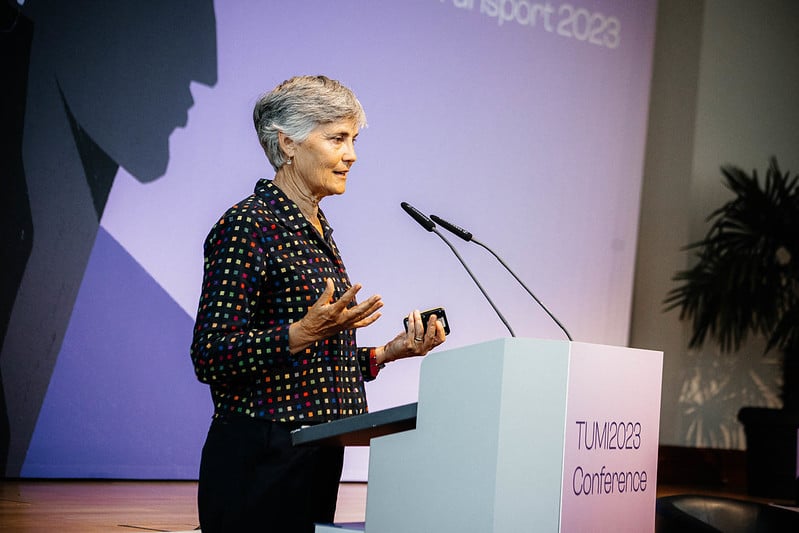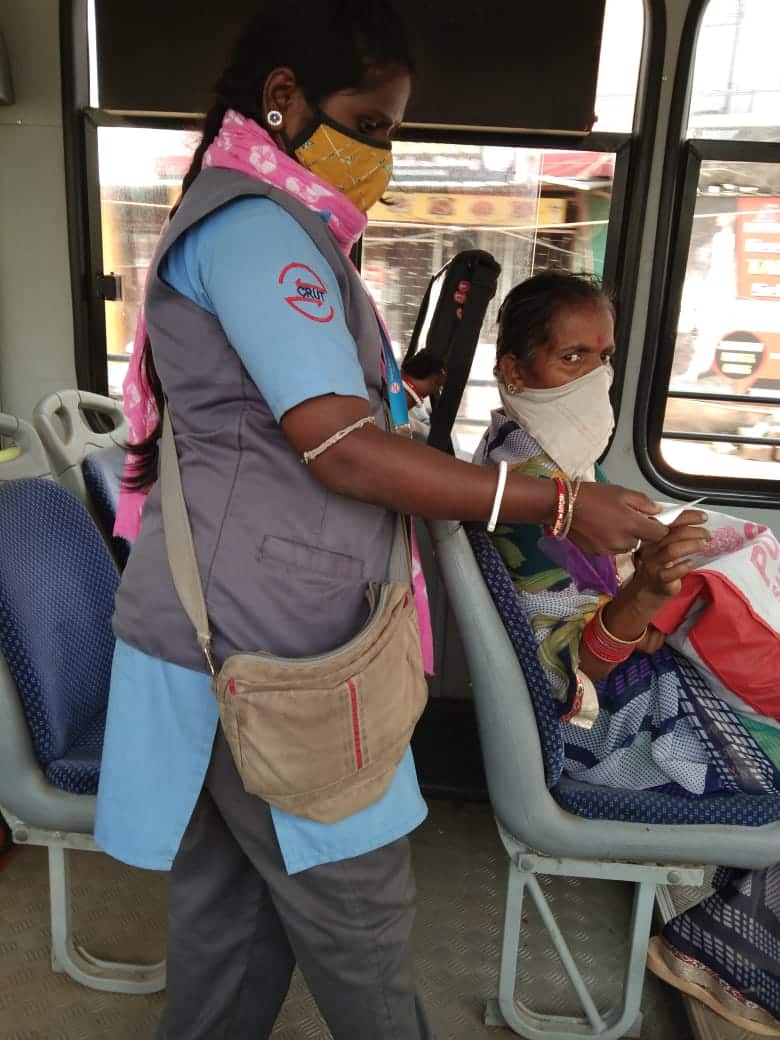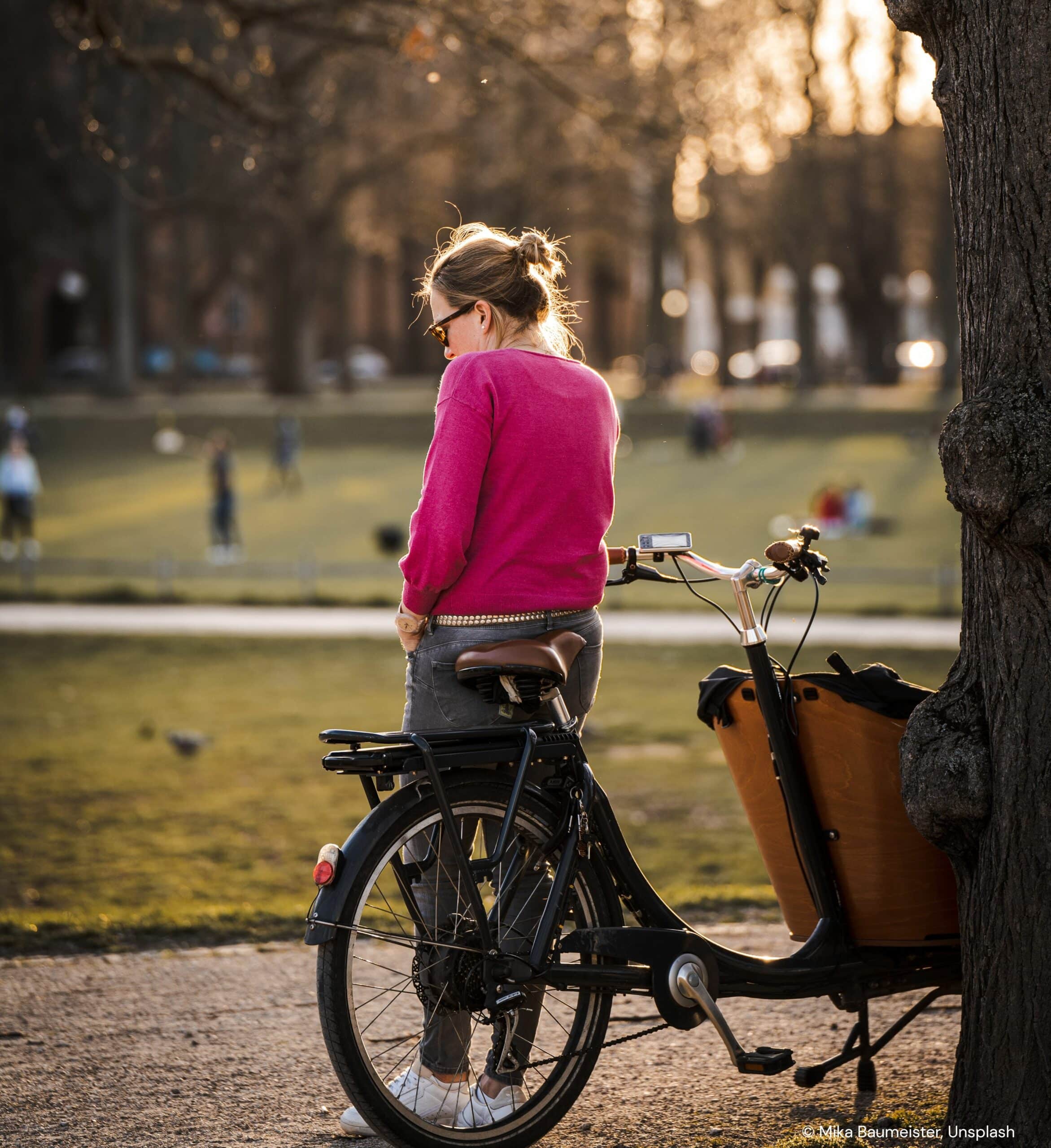With International Women’s Day just around the corner, I find myself reflecting on what it means to be part of the group of passionate people that are speaking up for feminist mobility and its vital role in creating a more equitable mobility landscape. It may seem obvious for some; being a woman myself creates a natural link. But it is about more than that. Woman or otherwise, feminist mobility is about creating a mobility environment where someone’s identified gender does not preclude them from participation in society due to factors outside of their individual control. It is for that reason, and not simply that I am a woman, that I am honoured to be partnering with Women Mobilize Women (WMW) to help continue pushing the importance of a feminist lens on mobility, and to share what feminist mobility means to me.
First and foremost, and why I am working with WMW, is the importance of taking a leadership role in the conversation. I am proud to count myself among some very knowledgeable and talented women aimed at shifting representation to better reflect the world around us when it comes to mobility. My personal growth as an advocate for gender equitable mobility has developed through being inspired by women who have been doing this work for decades – Jane Jacobs, Janet Sadik-Khan, my colleague Angela van der Kloof, and countless others. I recognize the importance of taking that mantel to be a role model for the next generation of women (and men and non-binary folks) and inspire them to carry on this conversation, and at the same time making sure I make the space for new voices, as those before me have done.
A natural transition from representation in leadership is representation across the entire field. At any time, half, if not more, of our global population is comprised of women. It has been well-researched and communicated in books like Fair-Shared Cities, Invisible Women, Feminist City, and my most recent book, Curbing Traffic, that one of the best ways to begin creating more equitable mobility is to have diversity of voices and experiences at the planning and decision-making table. Male-focused transportation systems–that have a heavy focus on making the commute to work as convenient and easy as possible–are a response to an historically male-dominated transport field.
However, as things have begun to shift, and more women, people of colour, and people with disabilities sit in the rooms where new plans are made, they are bringing their experiences to the process and changing the way we think about mobility. From more technical elements like kerb cuts, placement of beg-buttons, and heights and colours of wayfinding, to more fine-grained planning elements like network planning and how it better facilitates trip-chaining and care trips, social safety creating a more comfortable transport experience, and the role of reliable and accessible public transport in accessing opportunity–when you have more diverse perspectives at the table, the conversation evolves to one that is more inclusive of a broader range of mobility needs.
Finally, and perhaps most importantly, my passion for feminist mobility is predicated on the fact that I want to be a part of creating a legacy for a more equitable future, and not just a bystander. I am emboldened by the work of women throughout the mobility field who are constantly challenging me to look at mobility through a more multi-faceted lens. The global way we can connect across time-zones and geographies allows me to learn from such diverse perspectives from women living in all corners of the globe, and it informs my approach. Throughout my lifetime, I have borne witness to the changes that can happen when we take a more feminist approach to cities. From more inclusive cycling campaigns from HUB Cycling, a cycling advocacy organisation in Vancouver, that highlight the freedom cycling can provide women, organisations like Women in Urbanism Aotearoa shining a light on challenges of social safety in transport networks in New Zealand to push for positive change, to the larger network approach to walking, cycling and public transport planning I am fortunate to experience here in the Netherlands, that has resulted in a far more gender equitable mobility landscape than the suburban Canadian one I grew up in. My goal now is to ensure that women everywhere can enjoy that same potential.
Women do not hold sole responsibility for speaking up for feminist mobility practices, but through passionate advocates, professionals, researchers, and individuals, with support from organisations like WMW, women have been changing and continue to change how we think about and look at the way we move in cities. I am proud to be a part of this amazing group of people, and to do my part in making sure the work keeps pushing forward, challenging the status quo, and creating more equitable mobility for future generations.
WMW x Melissa Bruntlett
Women Mobilize Women is proud to announce its collaboration with Urban Mobility Advocate and Advisor, Melissa Bruntlett. As a Women Mobilize Women Ambassador, Melissa will act as a spokesperson for inclusive mobility and the empowerment of women in mobility. Over the course of the next few months, there will be contributions from her on our channels. At the same time, she will provide strategic and visionary advice to the WMW team to drive the path towards an inclusive future.
Melissa Bruntlett is a communications and engagement advisor focusing on urban mobility and sustainable cities. She is also co-author of Building the Cycling City: The Dutch Blueprint for Urban Vitality and Curbing Traffic: The Human Case for Fewer Cars in Our Lives. She believes it is imperative to build cities that work for every citizen, and uses her experience as an urban mobility advocate, engagement advisor, writer, and media producer to communicate the human perspective of sustainable transport. As a member of Mobycon’s International Team, Melissa supports the development of our international markets. She works with public and private partners in Europe and North America to develop communications and engagement strategies, provides workshops and knowledge sharing, performing market and demographic research, and advising on how cities and regions can take a holistic and equitable approach to mobility planning. Her work includes communications strategies for the Town of Otley, UK, Region of Cévennes Gangeoises and Suménoises, FR and the City of Batumi, Georgia, school travel planning programmes in Canada, and capacity building workshops throughout North America and Europe.



